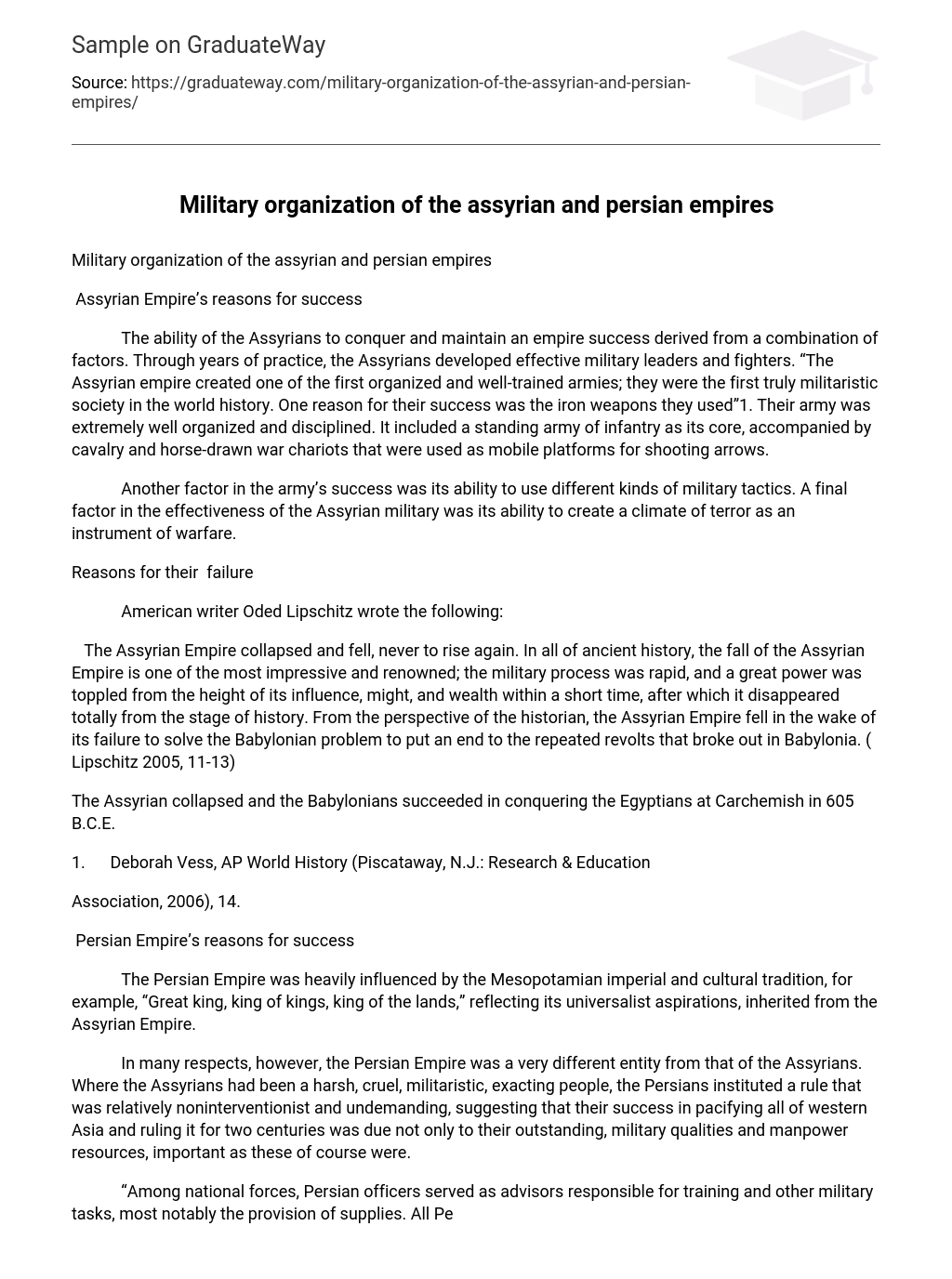Assyrian Empire’s reasons for success
The ability of the Assyrians to conquer and maintain an empire success derived from a combination of factors. Through years of practice, the Assyrians developed effective military leaders and fighters. “The Assyrian empire created one of the first organized and well-trained armies; they were the first truly militaristic society in the world history. One reason for their success was the iron weapons they used”1. Their army was extremely well organized and disciplined. It included a standing army of infantry as its core, accompanied by cavalry and horse-drawn war chariots that were used as mobile platforms for shooting arrows.
Another factor in the army’s success was its ability to use different kinds of military tactics. A final factor in the effectiveness of the Assyrian military was its ability to create a climate of terror as an instrument of warfare.
Reasons for their failure
American writer Oded Lipschitz wrote the following:
The Assyrian Empire collapsed and fell, never to rise again. In all of ancient history, the fall of the Assyrian Empire is one of the most impressive and renowned; the military process was rapid, and a great power was toppled from the height of its influence, might, and wealth within a short time, after which it disappeared totally from the stage of history. From the perspective of the historian, the Assyrian Empire fell in the wake of its failure to solve the Babylonian problem to put an end to the repeated revolts that broke out in Babylonia. ( Lipschitz 2005, 11-13)
The Assyrian collapsed and the Babylonians succeeded in conquering the Egyptians at Carchemish in 605 B.C.E.
1. Deborah Vess, AP World History (Piscataway, N.J.: Research & Education
Association, 2006), 14.
Persian Empire’s reasons for success
The Persian Empire was heavily influenced by the Mesopotamian imperial and cultural tradition, for example, “Great king, king of kings, king of the lands,” reflecting its universalist aspirations, inherited from the Assyrian Empire.
In many respects, however, the Persian Empire was a very different entity from that of the Assyrians. Where the Assyrians had been a harsh, cruel, militaristic, exacting people, the Persians instituted a rule that was relatively noninterventionist and undemanding, suggesting that their success in pacifying all of western Asia and ruling it for two centuries was due not only to their outstanding, military qualities and manpower resources, important as these of course were.
“Among national forces, Persian officers served as advisors responsible for training and other military tasks, most notably the provision of supplies. All Persians were required to serve in the military under a form of universal conscription”.2
Reason for their failure
The extraordinarily sudden fall of the Persian Empire to the Greco-Macedonian army of Alexander the Great was due not to significant disaffection against the Persians in Asia, but to the stagnation of Persian military technology and method, and indeed of technology and culture generally. “The explanation for Alexander’s success, and Darius failure, is primarily a military one”.3
2. Richard Stoneman, Alexander the Great (Routledge, 2004), 29.
3. Richard Gabriel. The Culture of War (New York: Greenwood Press, 1990), 72.
BIBLIOGRAPHY
Gabriel, Richard. The Culture of War. New York: Greenwood Press, 1990.
Lipschitz, Oded. The fall and Rise of Jerusalem: Judah under Babylonian Rule. Winona
Lake, Ind.: Eisen Brauns, 2005.
Stoneman, Richard. Alexander the Great. Routledge, 2004.
Vess, Deborah. AP World History. Piscataway, N.J.: Research & Education Association,
2006.





